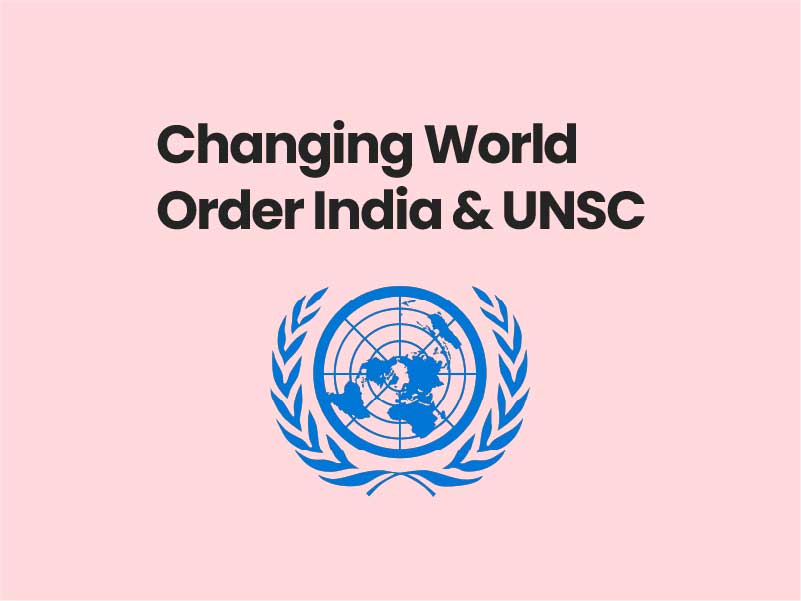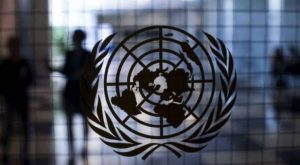Companion@360 → 7 Month programme to sharpen your writing skills → REGISTER NOW

Changing World Order India and UNSC
It enters the United Nations Security Council for the third time since the end of the Cold War, India finds a very different dynamic than the one it encountered during the earlier stints in 1991-92 and 2011-12. India, too, has changed over the last decade. The range of Indian interests has expanded and so has the circle of India’s international partners. Delhi’s attitudes have also shifted from the reactive to the proactive. That, in turn, should make India’s new stint at the UNSC more purposeful and pragmatic. Purposefulness is about tightly integrating its UNSC engagement with India’s broader national goals. Pragmatism demands adapting to the changed conditions at the UNSC and avoiding overly ambitious goals.
India And UNSC :
- India will start its eighth term as a non-permanent, voting member of the United Nations Security Council (UNSC).
- This two-year term presents a unique opportunity for the country to demonstrate global power and responsibility, thereby strengthening its claim to a permanent seat on the Council, which it has sought for decades.
- Indeed, the UNSC is overdue for some structural reforms and India has vocally and rightfully asserted that it deserves to be taken more seriously on the international stage.
- At the same time, while the Indian government talks a lot about deserving global power status, what exactly does it want to do with this power? That’s a question that nobody, including the Indians, has an answer to yet.
- To be perceived as a major power, India must articulate a clear vision of a world order, something that it has not so far done.
- Seventy years after attaining independence, at a time of monumental global shifts, India cannot continue to seek refuge in vacuous statements about strategic autonomy and sovereignty, and expect that the world will see it as a worthy leader.
- It must demonstrate its capacity to lead by example, through changes in both its foreign and domestic policy environments.
Changing World Order :
- New Cold-War: During 1991-92, Delhi saw the collapse of the Soviet Union, the end of the Cold War and the new Russia’s turn to the US and the West.
- The People’s Republic of China was focused on getting its house in order, opening its economy and keeping a low profile in the unipolar moment. India, too, had good reasons to keep its head down.
- Delhi had to fix its broken economy, put out political bushfires across the country and rejig its foreign policy to cope with the post-Soviet world.
- Retrenchment of US: retrenchment has led to a severe blow to multilateralism and globalisation
- Indo-Pacific as a New Sub-System: Indo-Pacific refers to the Indian and the Pacific Oceans between the east coast of Africa and the American west coast and their several littoral countries.
Challenges For Indian Foreign Policy:
- Compromising Non-Alignment
- China protects Pakistan from the international pressures that India has sought to mobilise at various fora.
- China now has assumed an aggressive posture towards India. It can be seen in recent Galwan Valley Clashes.
Way Forward:
- India now joins the UNSC amid a continuing military standoff, India can now expose the Chinese aggression in the Ladakh region.
- India should continue its partnership with G4 (Brazil, Germany and Japan) countries to expand the UNSC and become a permanent member.
- India could also use the UNSC tenure to deepen collaboration with its European partners like France and Germany in the security arena.
- India must also sustain an intensive dialogue with Russia on all international issues, notwithstanding Russia’s worsening problems with the West and closer ties to China.
India needs to revitalise its engagement with its traditional partners in the global south by articulating their peace and security concerns in the UNSC

